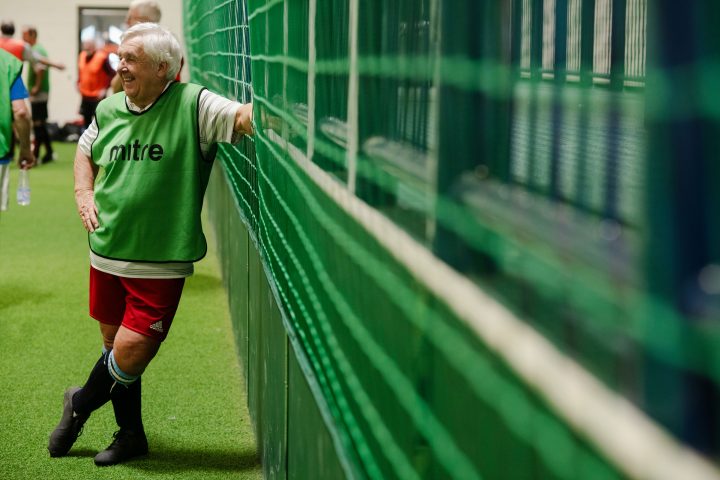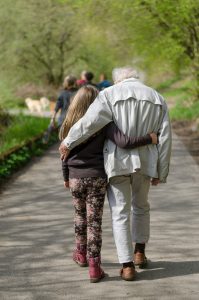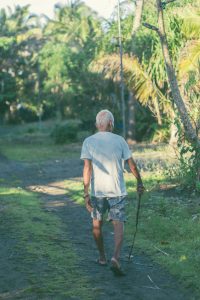Physical Activity and Dementia: The Importance of Exercise in Cognitive Health

June 2025 Newsletter
July 8, 2025
July 2025 Newsletter
August 14, 2025Physical Activity and Dementia: The Importance of Exercise in Cognitive Health

 As the global population ages, dementia has emerged as one of the most pressing public health challenges of the 21st century. Affecting over 55 million people worldwide, dementia is not a specific disease but a general term for a decline in cognitive function severe enough to interfere with daily life. Alzheimer’s disease is the most common form, but other types include vascular dementia, Lewy body dementia, and frontotemporal dementia.
As the global population ages, dementia has emerged as one of the most pressing public health challenges of the 21st century. Affecting over 55 million people worldwide, dementia is not a specific disease but a general term for a decline in cognitive function severe enough to interfere with daily life. Alzheimer’s disease is the most common form, but other types include vascular dementia, Lewy body dementia, and frontotemporal dementia.
While there is currently no cure for dementia, a growing body of research suggests that physical activity plays a crucial role in both preventing cognitive decline and slowing the progression of dementia. This blog explores how exercise supports brain health, the types of physical activity that are most beneficial, and practical ways to incorporate movement into daily life.
Understanding the Link Between Exercise and Brain Health
The brain, like any other organ, thrives on good circulation, oxygen, and nutrients. Physical activity enhances all of these, making it a powerful tool for maintaining cognitive function. Numerous studies have shown that people who engage in regular physical activity have a significantly lower risk of developing dementia compared to those who are sedentary.
Key Benefits of Exercise for Cognitive Health
- Improved Blood Flow to the Brain: Exercise increases heart rate, which boosts blood flow and oxygen delivery to the brain.
- Neurogenesis and Brain Plasticity: Physical activity stimulates the release of BDNF, promoting the growth of new neurons and strengthening neural connections.
- Reduced Inflammation and Oxidative Stress: Regular exercise helps regulate the immune system and reduce inflammation.
- Better Sleep and Mood: Exercise improves sleep quality and reduces symptoms of anxiety and depression.
- Management of Chronic Conditions: Physical activity helps control conditions like hypertension, diabetes, and obesity.
 What Types of Exercise Are Most Effective?
What Types of Exercise Are Most Effective?
- Aerobic Exercise: Walking, jogging, swimming, and cycling improve cardiovascular health and brain volume.
- Strength Training: Resistance exercises help maintain muscle mass and enhance cognitive performance.
- Balance and Flexibility Exercises: Yoga, tai chi, and Pilates improve coordination and reduce fall risk.
- Mind-Body Activities: Dance and martial arts stimulate multiple brain regions and support memory.
Exercise and Dementia Prevention: What the Research Says
Studies have identified physical inactivity as a top modifiable risk factor for dementia. Up to 40% of dementia cases could be prevented or delayed by addressing lifestyle factors, including exercise. Research also shows that aerobic and resistance training improve memory and executive function, even in individuals already diagnosed with dementia.
Incorporating Physical Activity into Daily Life
- Start Slow: Begin with short walks or light stretching and gradually increase intensity.
- Set Realistic Goals: Aim for consistency with even 10-minute sessions.
- Make It Social: Join groups or exercise with friends to stay motivated.
- Choose Enjoyable Activities: Pick exercises you enjoy to increase adherence.
- Incorporate Movement into Routine: Take stairs, walk during calls, or stretch while watching TV.
 Conclusion
Conclusion
While there is no guaranteed way to prevent dementia, physical activity stands out as one of the most effective and accessible strategies for protecting cognitive health. By improving blood flow, reducing inflammation, and supporting the growth of new brain cells, exercise offers a powerful defense against age-related cognitive decline.
Whether you’re in your 30s or your 70s, it’s never too early—or too late—to start moving. Incorporating regular physical activity into your lifestyle not only benefits your body but also strengthens your mind, helping you stay sharp, independent, and engaged as you age.
So, take that walk, join that dance class, or lift those weights—your brain will thank you.



